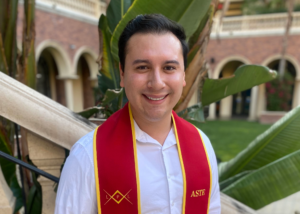
German currently works at NASA’s Johnson Space Center in Houston, Texas, as a Propulsion Systems Flight Controller at the Mission Control Center under the Flight Operations Directorate. He works the Space Launch System (SLS) and the Falcon 9 Commercial Crew Programs. Here is an account of his experience at the Liquid Propulsion Laboratory:
I was part of LPL from Sept. 2018 – May 2020 (4 semesters). I started out working on Hydra as a Test Engineer and on the Jessie & James engine (J&J) as an Engine Development Engineer. I worked on the testing campaign for Hydra ahead of its static fire in November 2018, and worked on J&J nozzle designs that semester as well. I was also the lead for the Mobile Oxygen Manifold System (MOMS) team and was in charge of basic concept design all the way through manufacturing and testing (did PDR and CDR for MOMS). I then became the Feed Systems Lead and heavily worked on getting Hydra back up and running to try and get another successful firing by the end of the 2020 school year. Because of COVID-19, that didn’t happen.
My favorite thing was getting to use and learn about hardware that I had only seen in textbooks. Working on an actual system like Hydra or Water Flow Test Stand (WFTS) was an incredible learning opportunity that taught me many lessons that got me to where I am today. Designing and maintaining feed system hardware, software, and creating Piping and Instrumentation Diagrams (P&IDs) were my favorite tasks.
Advice that I would give current members:
1) Get involved in testing as much as you can and ask questions! Everybody there is learning and no one is an expert. Don’t be afraid to ask lots of questions because it will make you a better engineer and make you more useful in the future. Be open to learning new skills.
2) Become a lead of a project – small or big. Leading a team and taking responsibility for a project will teach you many valuable skills about leadership, time management, teamwork and cooperation; all very important skills for engineers.
